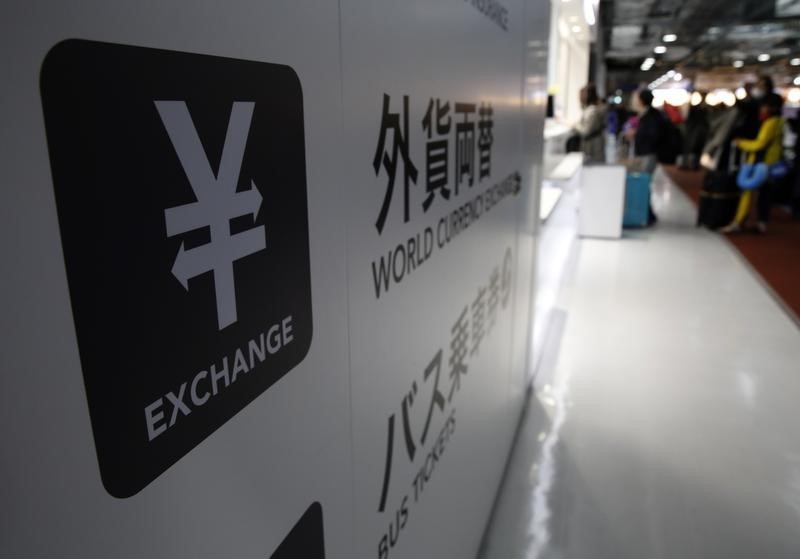By David Lawder
WASHINGTON (Reuters) - Japan's extraordinarily easy monetary policy, a source of friction with the United States for pushing the yen’s value down, has had some positive effects on emerging Asian economies, including increased growth and equity prices, International Monetary Fund researchers have found.
The IMF findings were released in a paper on Friday, as Group of Seven finance ministers and central bank governors began meeting in Japan, where divergent views on Japan’s monetary policy and currency market interventions were expected to be a hot topic.
The paper claims to be the first to model the spillover effects of Japan’s qualitative and quantitative easing programme (QQE) on Southeast Asian countries.
QQE was launched in 2013 and targets both government bond purchases as well as other assets, such as exchange-traded funds and real estate investment trusts.
The programme has helped push down the yen from 82 to the dollar in 2012 to 119 to the dollar by August 2015. Japanese equity prices surged and inflation also strengthened during this period.
Despite Southeast Asian currencies rising against the yen, they mirrored some of these effects, study authors Giovanni Ganelli, and Nour Tawk said.
"Our results show that implementation of QQE in Japan, when estimated by a positive shock to Japanese equity prices, consistently caused an increase in equity prices across emerging Asian countries, as well as an appreciation of their currencies,” they wrote.
"Most (Southeast Asian) countries experienced an increase in output and a temporary increase in inflation. Capital inflows surged in many countries.” They argue that while most existing research uses interest rate changes as proxies for quantitative easing, this transmission channel is broken in Japan because rates have been at the zero bound for an extended period.
Instead, they use stock market surges and increases in the monetary base as proxies for QQE.
CONFIDENCE
The researchers said that Japan’s QQE caused a significant increase in equity prices in emerging Asia, with increases in the 2 to 5 percent range for China, Indonesia, Malaysia, Singapore, Thailand, and Indonesia. And while nearly all countries surveyed experienced an appreciation of their currencies versus the yen as a result of QQE, it had a “generally positive” impact on growth in emerging Asian countries, with statistically significant increases in Indonesia, Malaysia, the Philippines and Thailand.
The authors suggested that a shift away from domestic goods to Japanese goods did not occur across the region.
They also said that another reason for the increased growth in these countries may have been increased confidence prompted by rising equity prices, which overcame the effects of their higher exchange rates. This was particularly true of China, which has strong trade linkages with Japan, the researchers said.
The yuan rose against the yen, but China saw a mild positive effect on GDP, though not significant, the authors said. But China likely benefited from lower input costs from Japanese components used in Chinese manufactured goods, as well as higher equity prices.
“In other words, despite the depreciation of the yen and the appreciation of the RMB (yuan), the overall spillover impact of QQE on China’s GDP was not negative, due to increased confidence as illustrated by the increase in equity prices, and a reduction in import costs” wrote Tawk and Ganelli, who is the deputy head of the IMF’s Japan office.

The paper does not represent the IMF’s staff policy view on currencies, but it may provide some ammunition for Japanese Finance Minister Taro Aso as he seeks to persuade his G7 counterparts to back Japan’s monetary policy and currency interventions.The paper can be read here: http://www.imf.org/external/pubs/ft/wp/2016/wp1699.pdf